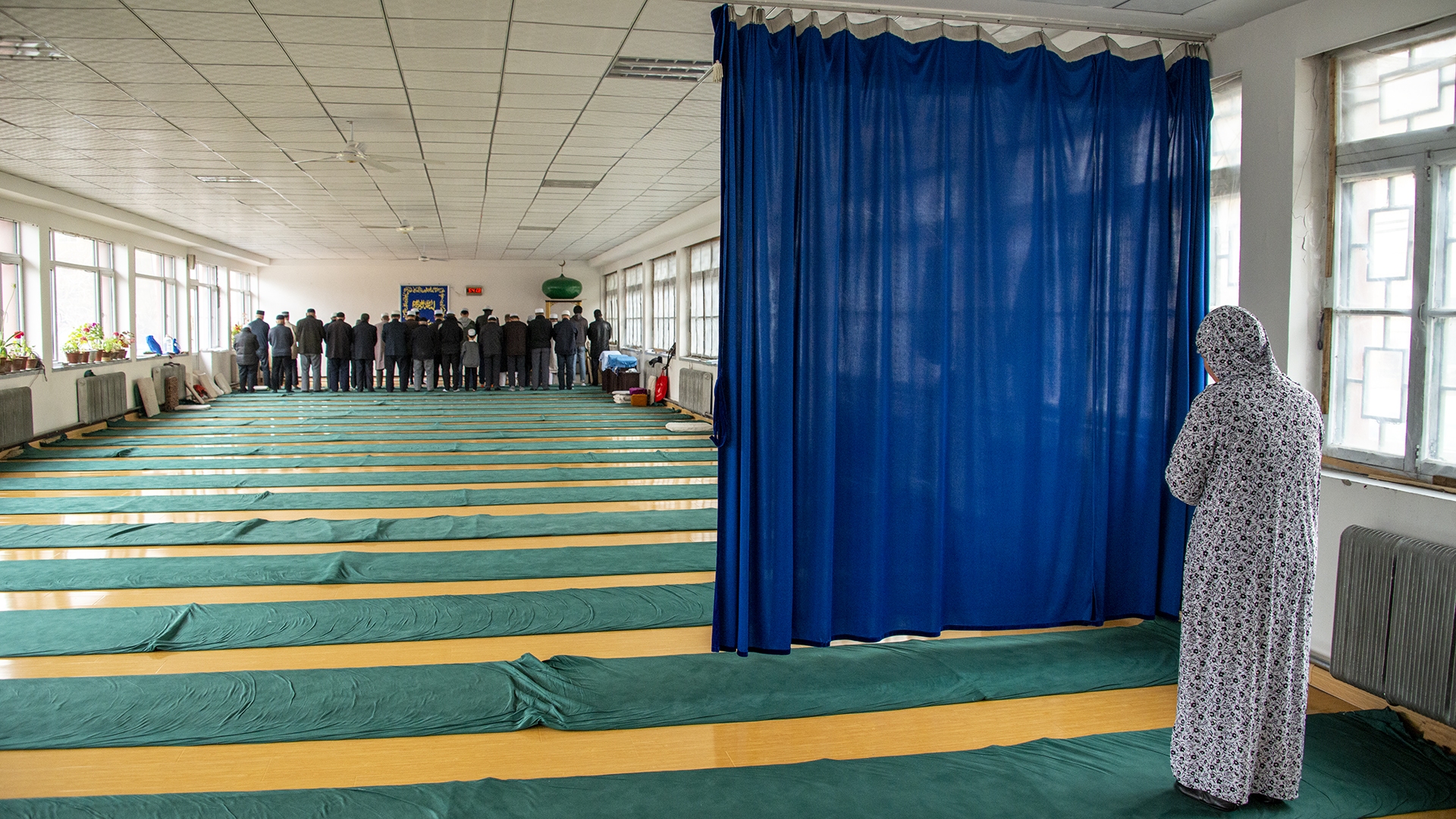The streets are quiet, and the sky is still black at half past three in the morning when cell phones and alarm clocks begin buzzing across the city. It’s time for East Asia’s Muslims to wake, eat and pray. They rise to welcome another day of Ramadan, a month where Muslims fast from sunup to sundown.
Hassan*, one of East Asia’s roughly 15 million Muslims, owns a noodle shop. He and his family wake around 3:30 a.m. to eat breakfast in the dark before prayer begins half an hour later.

Following prayers, Hassan collapses back in bed for a few hours. He rises for work as the skies outside lighten. His family spends the day cooking noodles for others over steaming hot woks without eating, drinking or complaining.
Around 8 p.m., Hassan rushes to help clean up and close the restaurant. Then he heads to the mosque for evening prayers. Before prayers begin, he breaks his fast by eating a date. Then he files in to pray in unison with a roomful of other white-capped Muslim men.
Afterward, he rushes home to eat quickly before returning to the mosque at 9:40 p.m. for the last prayers of the day. Finally, when the service ends at 11 p.m., he heads home and straight to bed. He only has four hours before his alarm clock will buzz again, signaling the beginning of another long day.
If someone asked you which regions of the world celebrated Ramadan, East Asia probably wouldn’t be the first place on your list. But almost every city and province of East Asia is home to Muslim communities, and they remain one of the region’s least evangelized people groups. Less than .1% have a relationship with Jesus.
Most of East Asia’s Muslims can trace their ancestry back as early as the 8th century A.D., when East Asia’s emperor recruited help from neighboring Arab countries to suppress uprisings. Many of the soldiers who came to help fight settled in East Asia.
When East Asia began trading with the West, the Silk Road trading routes brought textiles and goods from the heart of the region all the way into Europe. It also brought Arab traders from as far west as Istanbul to the East for the first time. Many of these traders, like the soldiers, stayed and settled in the region.
Today’s East Asian Muslims are descendants of intermarriages between these Turk, Arab and Persian immigrants and the native East Asians. Though several minority people groups in the region are Muslim, the large majority are part of a people group known as the Hui [pronounced whay]. Over the centuries, the Hui adopted the native language of East Asia, but retained Islam as their religion.
Most of the Hui have never heard the gospel. If they have, they still face many barriers that make belief in Jesus difficult. For example, one young Muslim had never met anyone from another faith until she started college.
“I’ve started hearing about this man named Jesus, who died for me,” she said. “I’ve even spent some time studying the Holy Bible. I’ve heard the news of Jesus many times. I’m very interested, but I am Hui.
“To be Hui is to be Muslim, and to abandon Islam would mean that I would abandon my family’s religion. If I choose to believe, will they love me anymore? Will they abandon me?”
Despite these challenges, God is at work. After a prayer emphasis for the Hui in 2013, thousands committed to pray that God would move among them and that they would choose to believe.
Before the end of the year, a new Hui church had formed. The Hui were the largest people group in the world without a single church, before this first church was planted. Within five years, hundreds of new Christian workers had planted their lives among the Hui to share the gospel.
This year, Ramadan will end on May 23. Though celebrations look different because of COVID-19, many Muslims will still be intently focused on spiritual things this month. Christian workers among the Hui have seen God use this season before to open many hearts to the gospel, and they are hopeful for what He will do this year.
“May the Holy Spirit move mightily among the Hui in the days ahead,” said one Christian worker, “and may God’s kingdom grow in miraculous ways.”
To join in praying specifically for East Asia’s Muslims during Ramadan, you can find a prayer guide here.
*Names changed for security

